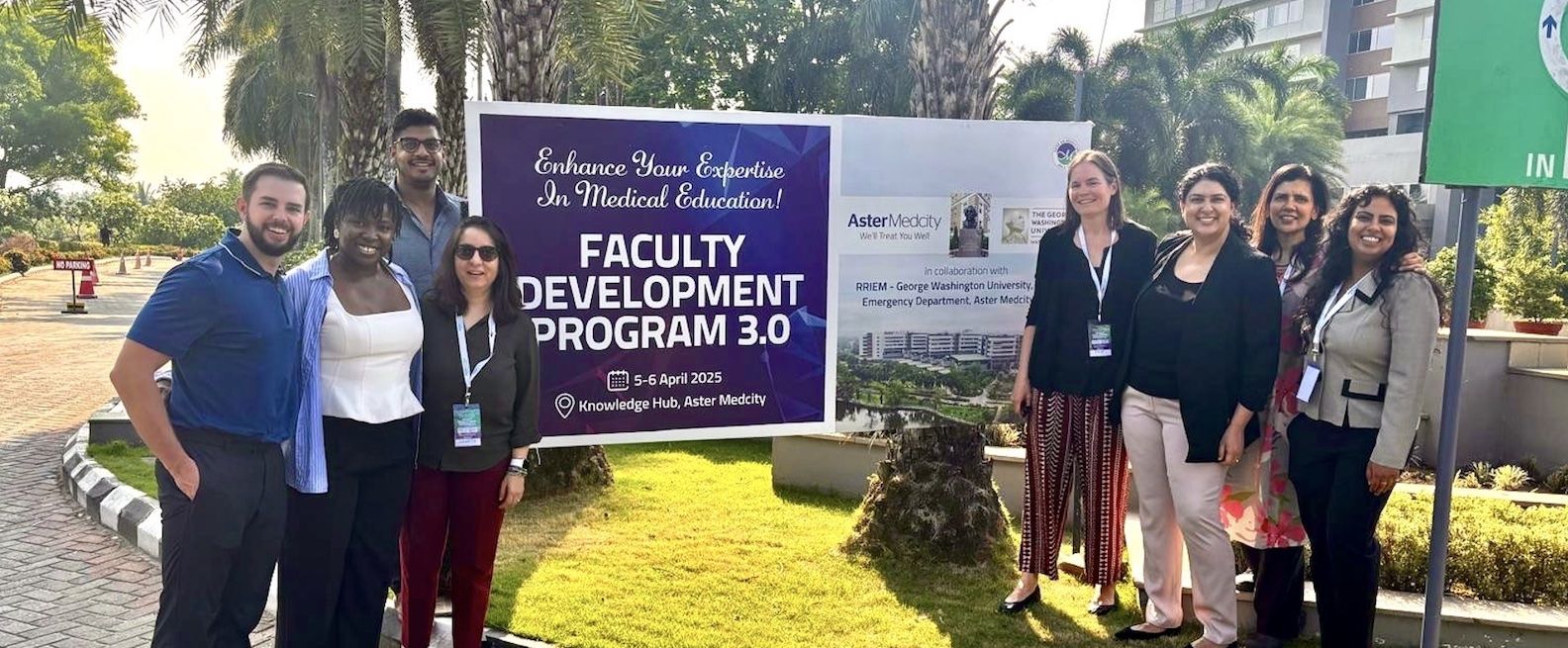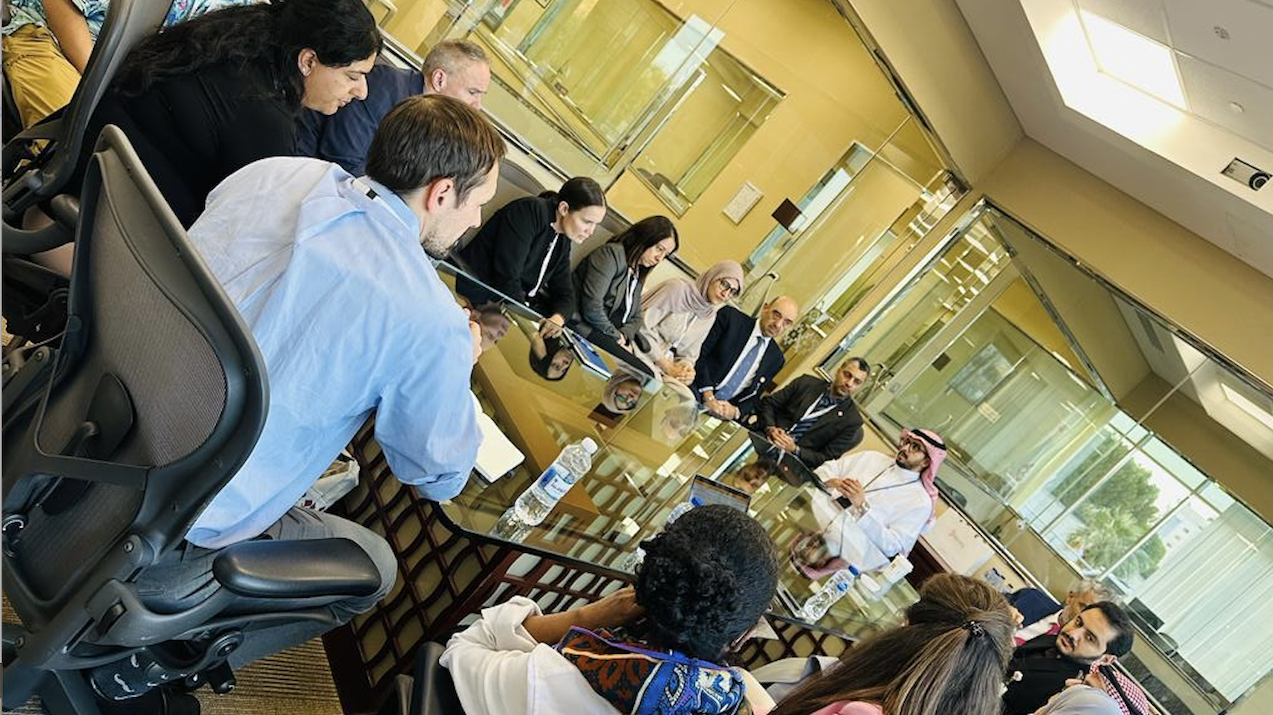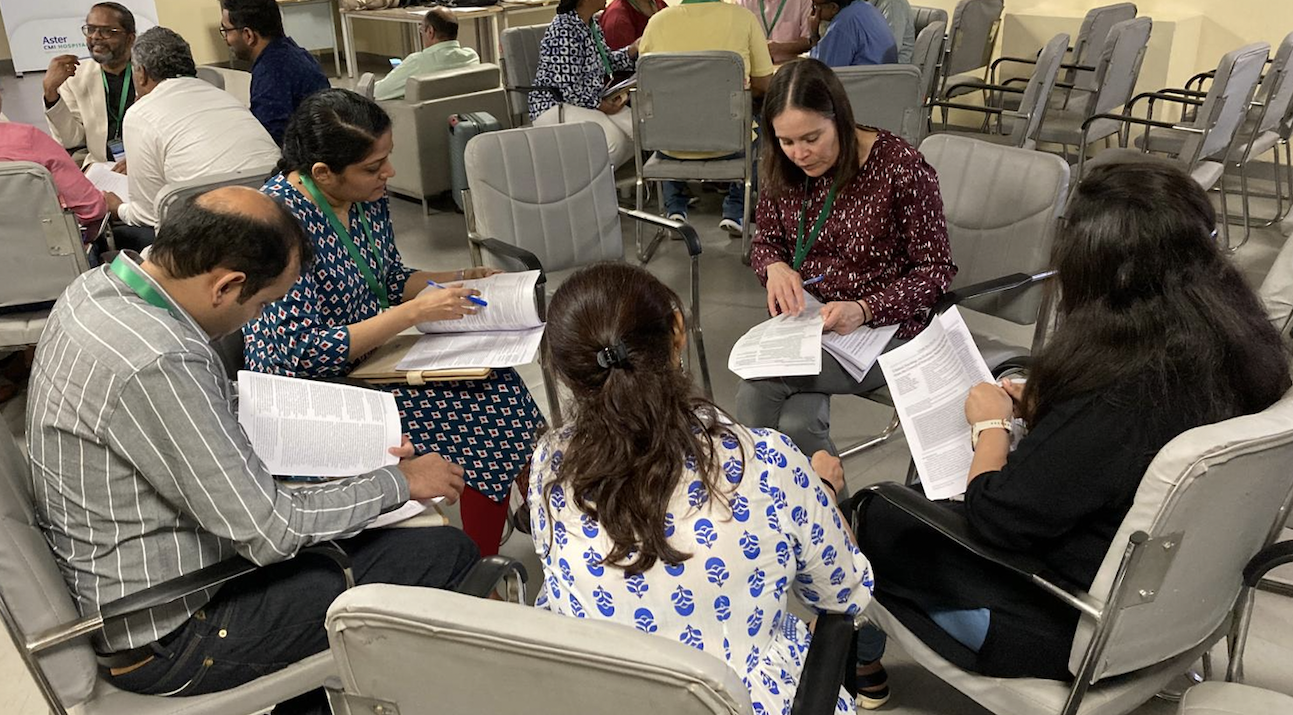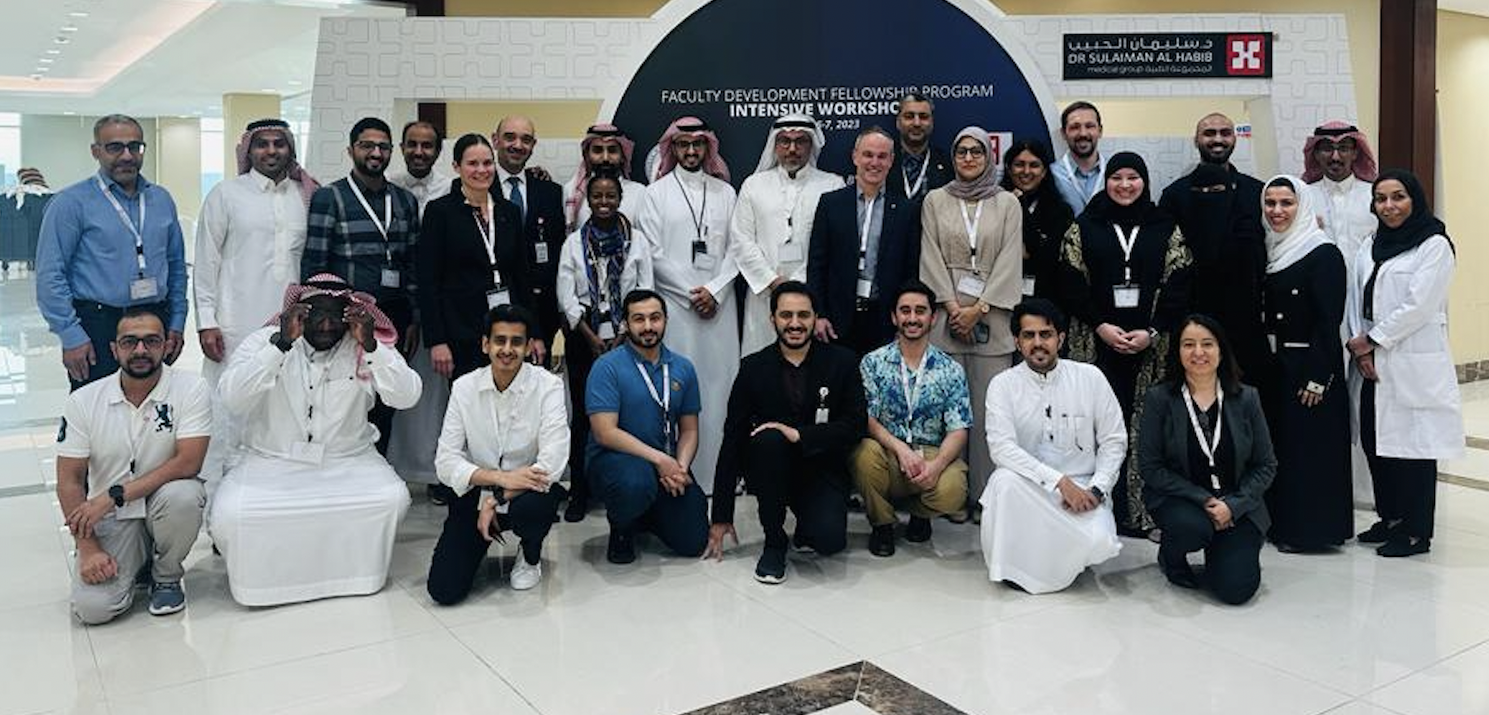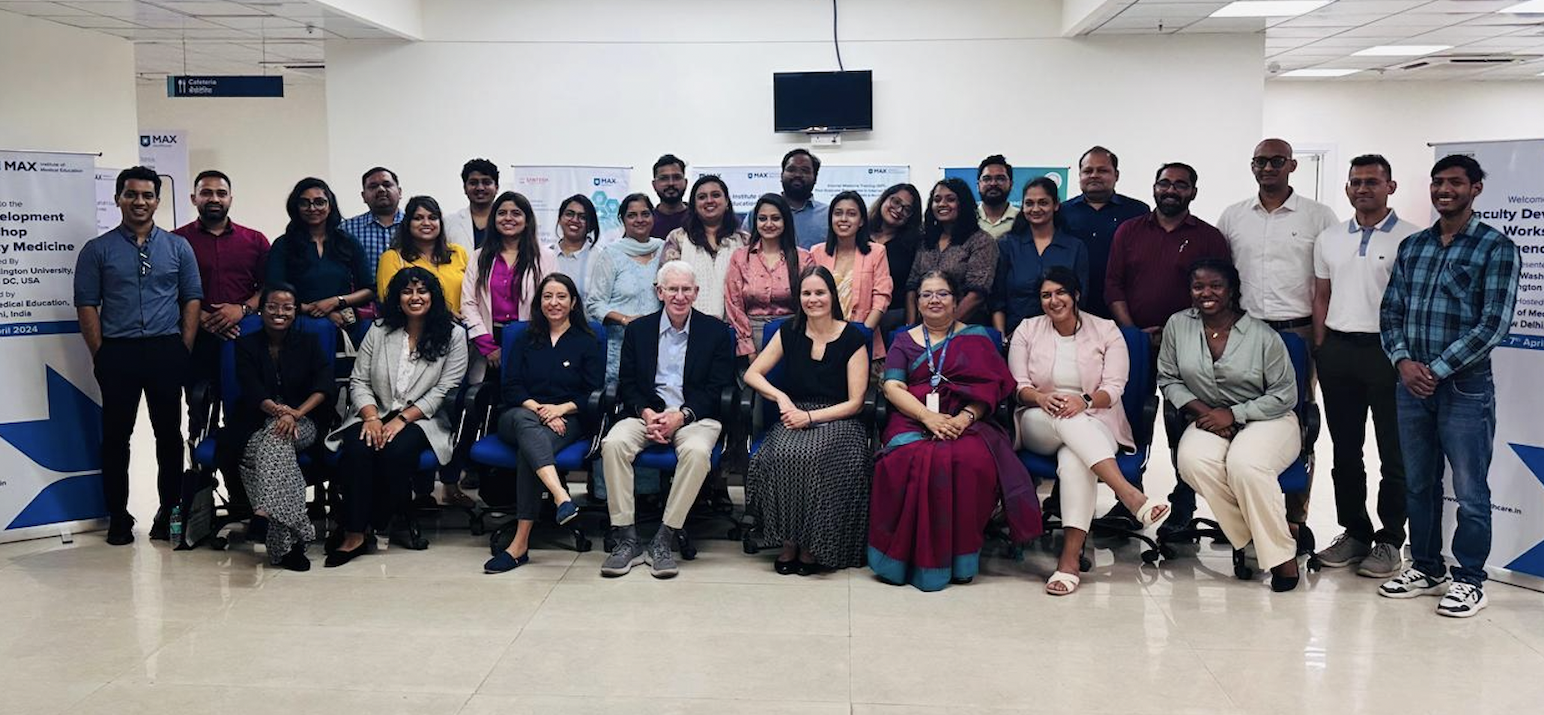Faculty Development Program in Emergency Medicine Overview:
The purpose of the Faculty Development Program (FDP) is to advance the academic careers of emergency medicine physicians who are currently practicing and teaching in academic institutions. This program is designed to build research, education and leadership capacity for the next generation of academic leaders in emergency medicine.
The program is a one-year modular program that is delivered through synchronous video sessions combined, facilitated mentoring and work-related projects while allowing practicing faculty the ability to continue their current positions, with minimum disruption to their work patterns.
The FDP has three major themes – Teaching, Research and Leadership. Candidates will engage in regular synchronous learning sessions in each of these topic areas, while also engaging in asynchronous learning and regular interactions to enhance learning and practice in each of these areas. Ongoing mentorship will accompany the longitudinal curriculum to focus on development of personal goals and objectives of enrolled candidates.
Program Partners:
The Ronald Reagan Institute of Emergency Medicine is currently partnering with the Dr. Sulaiman Al Habib medical group in the Faculty Development Fellowship Program. This partnership has enabled recruitment of excellent candidates with commitment to learning and career development in Emergency Medicine, focused on the three pillars of Teaching, Research, and Leadership. The impact of this program has potential opportunity to reach departments, hospitals, and patients.
Program Learning Objectives:
When fellows complete this program, they will be able to do the following:
Teaching
- Describe key principles of adult learning theory.
- Demonstrate alignment of learning objectives with teaching strategies and learner assessment methods.
- Describe components of effective feedback and formative and summative learner assessment.
- Practice effective teaching in large and small groups, including simulation environments.
- Incorporate principles of evidence-based medicine into teaching activities.
- Describe the differences between online and in-person teaching and learning strategies.
Research/Quality Improvement/Patient Safety
- Identify key elements of a well-designed research or quality improvement project.
- Describe descriptive and common quantitative analysis techniques and methods of measurements in clinical or educational research and quality improvement.
- Demonstrate effective strategies and apply these to create a research, design and deliver a journal club and/or a local quality improvement project.
- Develop a systems approach to patient safety and an understanding of how a systems-based incident investigation is conducted with relation to practical examples.
- Understand concepts of patient safety in order to apply concepts and practices to clinical practice environments.
Leadership
- Describe approaches to leadership and leadership styles in academic medicine.
- Implement strategies to improve personal effectiveness as a leader and mentor.
- Implement strategies for effective performance of inter-disciplinary teams on Quality Improvement and Educational projects or programs.
- Employ tools and techniques of change management as applied to a work-related project in education, clinical quality improvement or patient safety.
- Understand concepts of burnout and wellness, and work to apply a wellness strategy in a clinical department setting.
Programme Structure:
- Online Education
-
There will be essential reading material, video lectures, discussion boards and other online education content that is curated for the FDP curriculum.
- Regular Synchronous Learning Sessions
-
Regular synchronous meetings will be pre-arranged on a monthly basis. These will be facilitated by GWU core faculty. The topic will focus on one of the three core areas of Teaching, Research or Leadership. Preparation materials will be shared in advance of the conference.
- Intensive in-person sessions
-
There will be additive in-person intensive workshops over the course of the year by a group of visiting faculty at one of the sites hosting the FDP program. These sessions will focus on practical skill building in the areas of Teaching, Research and Leadership, combined with knowledge sharing and professional relationship building.
- Mentorship
-
Mentorship relationships will be established for all participants in the FDP. This may be done through individual relationships or intentionally designed peer-based learning groups, each set with specific goals and objectives towards furthering career goals. Mentors will be intentionally selected from core GWU faculty members, and regular meetings will be expected to reflect on lessons from the facilitated group sessions, discuss project progress, and provide peer support.
Individuals interested in more information can contact us at rriemadmin [at] gwu [dot] edu (rriemadmin[at]gwu[dot]edu)
